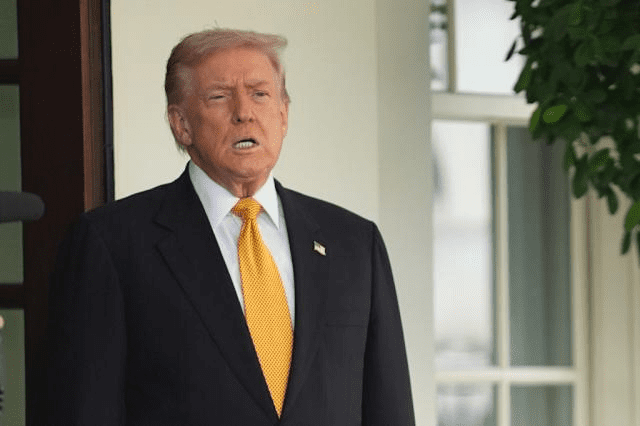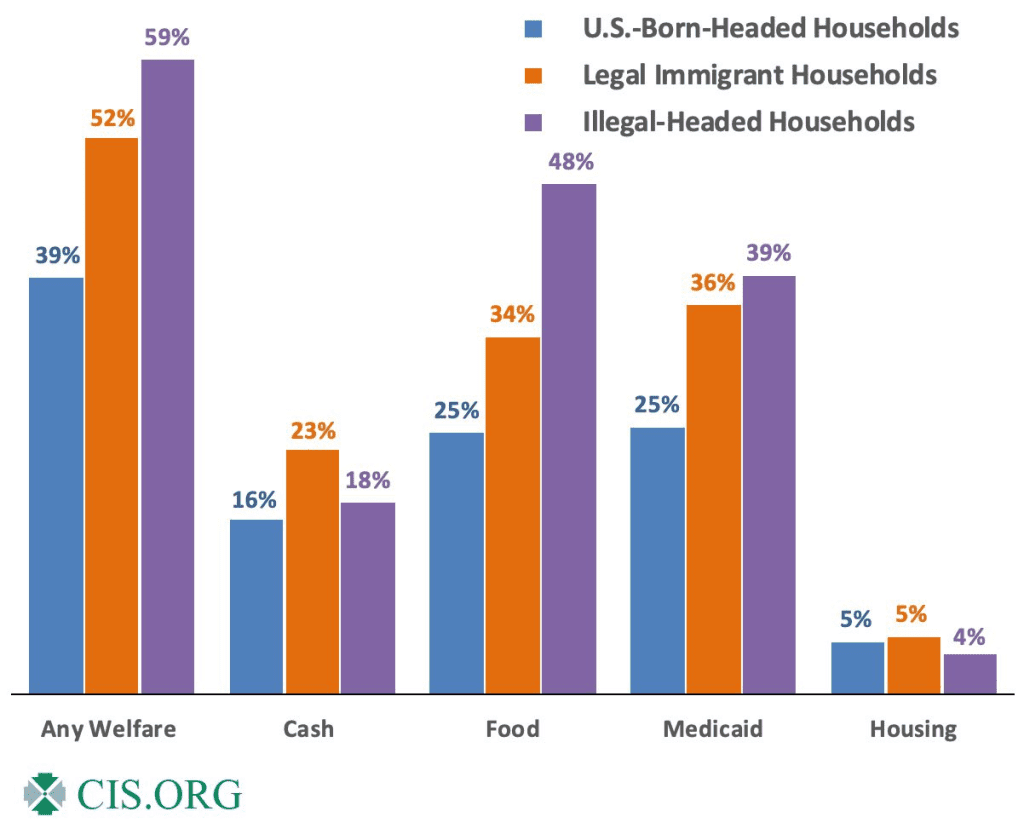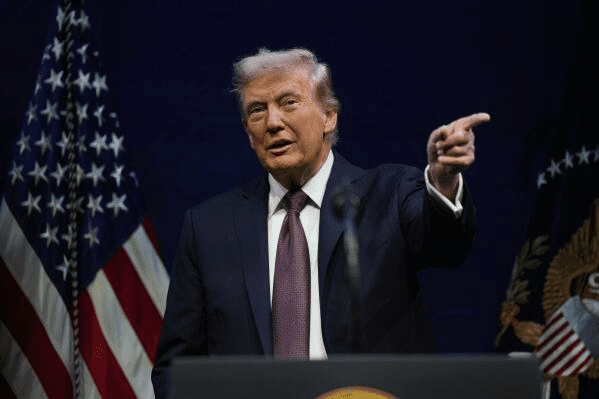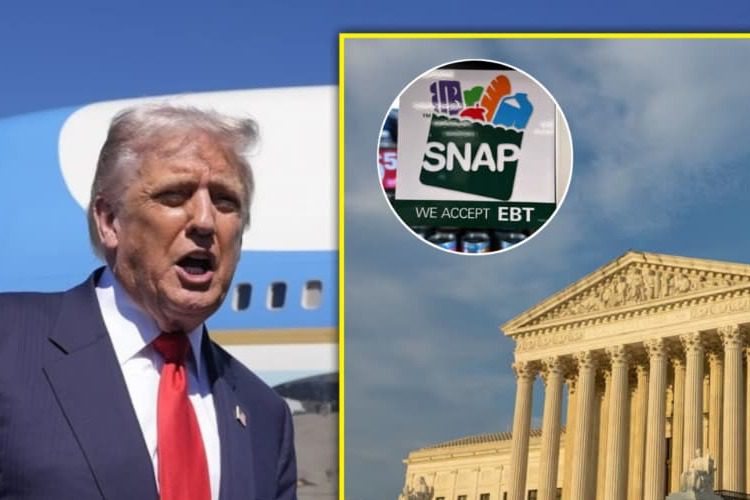Supreme Court Rules in Favor of President Trump, Backing His Decision to Withhold Billions in SNAP Payments Amid Government Shutdown — A Landmark Win for Fiscal Accountability
In a ruling that sent shockwaves through Washington late Friday night, the Supreme Court issued an emergency stay siding with President Donald Trump’s administration, temporarily halting a lower court order that would have forced the government to release full November SNAP benefits despite the ongoing shutdown and lack of appropriated funds. The order, signed by Justice Ketanji Brown Jackson, effectively gives the Trump administration the green light to withhold approximately $4 billion in payments that officials argue Congress has not legally authorized during the funding lapse.

The dispute centers on whether the federal government can be compelled to spend money it does not have — a question that strikes at the heart of the nation’s fiscal and constitutional order. The lower court’s earlier decision had demanded that the administration fully fund the Supplemental Nutrition Assistance Program, known as SNAP, for its 42 million participants. But Trump’s legal team pushed back, arguing that without an active congressional appropriation, the executive branch had no constitutional authority to disburse full payments.
The Supreme Court’s ruling, though temporary, marks a major victory for fiscal conservatives who have long argued that unchecked spending during shutdowns undermines the very principle of separation of powers. “You can’t conjure money out of thin air,” one senior White House official said following the decision. “President Trump has been clear: until Congress does its job and passes a responsible funding bill, we will not break the law just to satisfy political optics.”

The shutdown, now stretching into its sixth week, began after a bitter standoff between the administration and congressional Democrats over emergency border funding and entitlement caps. At the center of the impasse lies the question of spending authority — a constitutional tension that has resurfaced throughout American history, but rarely with stakes this high. The SNAP program, one of the largest social safety nets in the country, provides food aid to tens of millions of low-income households. Traditionally, the U.S. Department of Agriculture has relied on contingency reserves to keep benefits flowing during brief shutdowns. But with the 2025 impasse dragging on and reserves dwindling, the administration had announced it could only issue roughly 65% of normal benefits for November unless Congress passed a new spending measure.
That announcement triggered immediate legal challenges from advocacy groups and several Democratic-led states, which accused the administration of violating the Food and Nutrition Act’s requirement that benefits be distributed monthly. The case quickly escalated to federal court, where a district judge sided with the plaintiffs and ordered the administration to release full benefits “regardless of funding status.” The Justice Department appealed, warning that such a mandate would set a “dangerous precedent” by forcing the executive to spend unappropriated funds — effectively bypassing Congress’s power of the purse.

Friday’s Supreme Court order paused the lower court’s ruling, granting the administration temporary relief while the full case proceeds through appeal. The unsigned order did not elaborate on reasoning, but sources close to the Court say it reflects deep institutional concern about maintaining fiscal boundaries during shutdowns. “Even the justices who may not align ideologically with President Trump understand that the Constitution is explicit — you cannot spend what Congress hasn’t approved,” one legal analyst told Fox News Digital.
The reaction was swift and polarized. Supporters of the decision praised the Court for upholding fiscal responsibility amid what they described as decades of runaway spending. “This is common sense,” Senator John Kennedy said on X, formerly Twitter. “You can’t buy groceries with money you don’t have, and neither can the government. President Trump is doing the responsible thing.”
Conservative commentators echoed the sentiment, applauding the administration for taking a stand that previous leaders avoided. “It’s not about cruelty — it’s about discipline,” wrote political columnist Mollie Hemingway. “Trump is forcing Washington to live within its means, and the Supreme Court just backed him up.”

But the ruling also sparked outrage among Democrats and advocacy groups who accused the administration of weaponizing the shutdown to target vulnerable families. “Millions of Americans are going hungry because this president wants to make a political point,” Senate Majority Leader Chuck Schumer said in a statement. “This decision is heartless and unjust.” Progressive activists called for mass protests, while several governors pledged to use state reserves to temporarily cover the lost funds.
Behind the rhetoric, however, the broader issue remains one of constitutional clarity. Under Article I, Section 9 of the U.S. Constitution, “No Money shall be drawn from the Treasury, but in Consequence of Appropriations made by Law.” Historically, presidents have interpreted that clause as limiting their power to spend without congressional authorization. But critics say modern shutdown dynamics — which freeze essential programs like SNAP — have created a moral dilemma that the framers never anticipated.
President Trump, addressing reporters outside the White House shortly after the ruling, struck a firm tone. “We respect the Supreme Court’s decision, and I think it’s a big win for America’s taxpayers,” he said. “This is about protecting the rule of law. We cannot spend money that doesn’t exist. It’s time for Congress to stop the games and do its job.”

Administration officials emphasized that the decision was not an attempt to eliminate SNAP or reduce long-term funding but rather to maintain fiscal integrity during the shutdown. “This isn’t about punishing families — it’s about preserving the Constitution,” said Agriculture Secretary Charles W. Herbster. “Once Congress authorizes the funds, the payments will resume immediately. Until then, the law is the law.”
Still, the practical impact of the stay is substantial. For the 42 million Americans who rely on SNAP, November’s reduced payments will hit hard, especially as food prices remain elevated. Retailers and local food banks have begun bracing for increased demand, with several major chains pledging to support affected communities. “This will be tough,” admitted one USDA official. “But fiscal responsibility sometimes comes with hard choices.”
Political observers note that the case could have far-reaching implications for future administrations. If the Supreme Court ultimately upholds Trump’s position, it could redefine how federal programs operate during funding lapses, effectively curbing the executive branch’s ability to use contingency funds as stopgaps. “This decision could mark a turning point,” said former federal budget director Russ Vought. “For decades, Washington has operated on autopilot spending. President Trump’s stand — and now the Court’s affirmation — forces everyone to confront reality.”

Inside the West Wing, aides celebrated the ruling as validation of the president’s approach to the shutdown, which he has framed as a test of Washington’s financial discipline. “This is what leadership looks like,” one senior advisor said. “The easy thing would be to cave to political pressure. But President Trump is fighting for the principle that government should live within its means — just like every hardworking American family.”
On social media, conservative voices rallied around the decision, contrasting Trump’s stance with what they described as the fiscal recklessness of past administrations. “Trump is the first president in decades to actually say ‘no’ to spending we can’t afford,” wrote talk show host Dan Bongino. “That’s real leadership.”
Meanwhile, critics accused the administration of prioritizing budget principles over human impact. Democratic strategist David Axelrod warned that the optics could be politically risky. “The president may win in court, but he risks losing in public perception if families go hungry,” he said. But among Trump’s base, the message of accountability has struck a chord — portraying him as the only leader willing to take political heat for the sake of constitutional fidelity.
As the government shutdown stretches toward the two-month mark, pressure is mounting on Congress to reach a compromise. Negotiations over a temporary funding bill are ongoing, but neither side appears close to an agreement. For now, the Supreme Court’s order stands as both a legal shield and a political statement — affirming that even in times of crisis, fiscal law must prevail.
In the words of Justice Antonin Scalia, often cited by conservatives in cases like this: “The Constitution means what it says.” For President Trump, that principle has become more than a slogan — it’s a defining stance in a Washington that often forgets limits exist for a reason.


